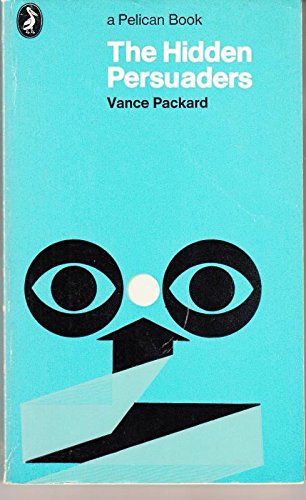Why do we dislike adverts so much in our daily encounter with the computer?
It’s one thing, I suppose, to be bombarded with commercial messages when the service we use is free - like Facebook - but even there, the main product which that company - and don’t forget its grasping shareholders - lives from, is us chickens.
We are the ones, we and our information, likes, dislikes, gender, age and location, which is sold to the companies who wish to better direct their products. The fact that a proportion of those advertisers (or ‘sponsors’) are attempting to sell us a dodgy product with ‘last few days’ discounts should warn us: but no - we fall for all these scams and traps.
In truth, advertising is a fascinating industry, which uses psychology in its many forms, from making the buyer feel better, more comfortable and fulfilled. The famous book on the subject, Vance Packard's The Hidden Persuaders, was written long before the Internet - back in the days when cars had tail-fins.
Right now, a targeted advert from some obscure company which probably started business a week ago arrives every tenth post or so on my Facebook feed, telling me of the virtues of some household product which can cure everything, please read on… It's just a form of click-bait, a bit like the one you see in downmarket newspaper headlines. If you turn to it, the new page will offer a wordy article about the hundred different uses for Vicks Vapour Rub, for example, interspaced with endless adverts. Yes, the client company pays young Mark Z to place its advert, which is in turn, full of targeted adverts.
One can only hope the Vicks people get a cut.
What are the moderators really there for - to stop some delightful girl from Denver writing to me out of the blue proposing a relationship if I only send her five thousand dollars?
If we expect it with Facebook (or from the other social media pages which I must admit I’ve not sampled), then what of the ordinary news-sites?
Once again, if you don’t know what the product is, then it’s you. Which is why advertisers advertise.
This is particularly unarguable with a free newspaper. The blurb is just space that wasn’t sold by the sales-reps or the ad-manager. ‘We need some filler for page eight’ calls the fellow from layout from his bunker in the back office. Then perhaps, there’ll be some advertorial (that’s to say, paid-for copy) on page nine.
Adverts: so long as they aren’t too much of an irritation, then fine. But what about - and we return to the computer or the television screen - the pop-up advert that suddenly interrupts one’s reading?
Of course, the medium needs an income. There are staffers, writers, printers, photographers, distributors, lawyers, owners and shareholders to pay. But we have pay-walls, subscribers and a wealthy parent-company putting out its own angled-copy. So yes, advertisers too, but my point is that we don’t have to like them (Sorry!).
As we know, Elon Musk certainly doesn’t.
Then there are the media-sites with pay-walls - do they expect us to get our news from a single source and shouldn't they be, in consequence, advert free? How many annual ransoms should one be paying to get the full range of reporting?
Mostly, one can get around them anyway with a simple paywall-bypass.
Then we have the war between the useful ad-block extension (a practical tool for the consumer) and the ad-block-blockers, increasingly used by the media. It’s a struggle which will never end.
And so we come to YouTube, which will drop an ad-bomb half-way through a spoken sentence. In the same spirit of disorder, Spanish TV - which I rarely watch - will think nothing of interrupting a film with adverts, which understandably irritates the viewer while the mood is irretrievably lost. As a result of this, along with the manipulation in the news, along comes a report to say that TV watching has fallen again in favour of other options.
But what of subscription TV? How about when one has paid to be rid of those pesky plugs that ruin our viewing? What have we learned here?
Simply this: that advertisements, or commercial interruptions, are a nuisance and a pest. If you pay enough as a subscriber and a streamer, you might be relieved of them.
At least in the novel I’m currently reading, which I got from the library, there aren’t any endorsements.
And then there’s the cinema - at least no one would dare stop the film to promote a fruit-drop.
Which brings us to this question - do we ignore the advertisers buzzing around like flies at the stables, or actively decide to avoid their products?
It’s easy enough when it’s a BMW, but what about - and it’s coming up to Valentine’s Day - a certain fragrance pour l’homme, or maybe a lengthy message about the many uses for potato-peel?
One thing’s for sure - this article will never appear anywhere outside of my blog…
…...